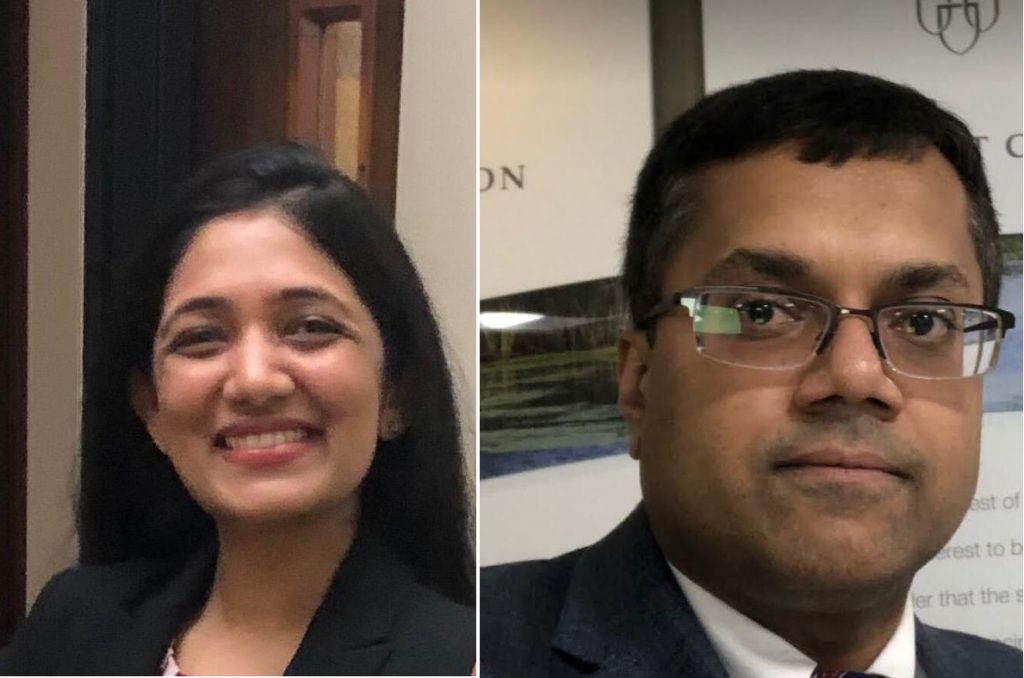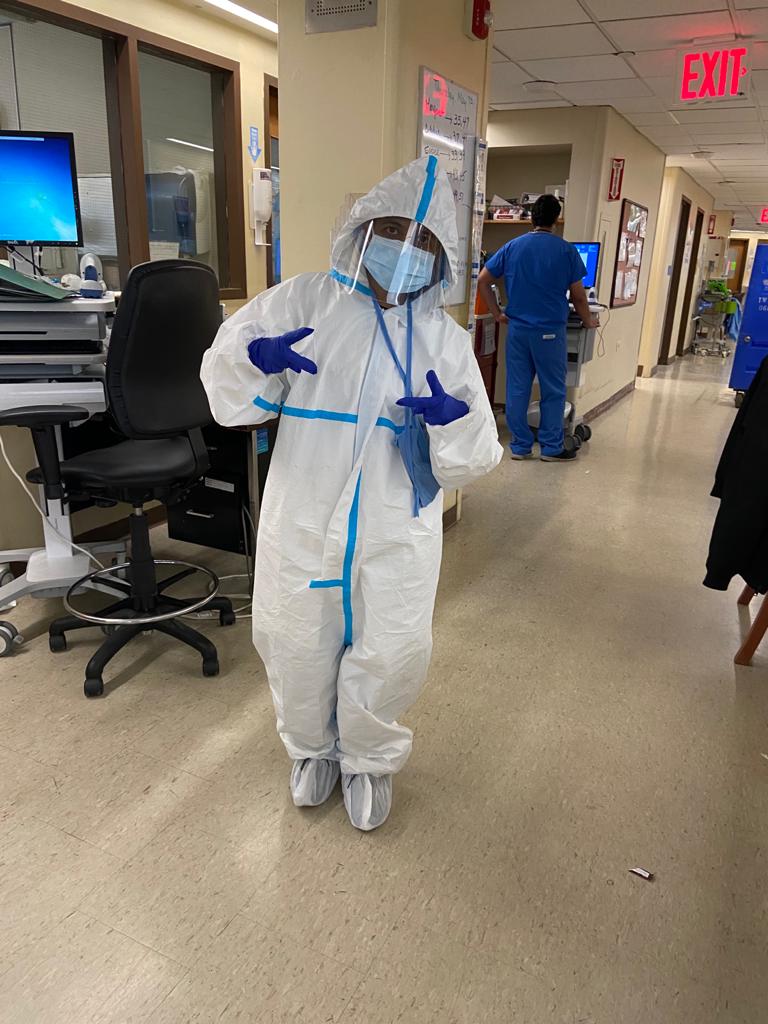
Introduction
Dr Anagha Kumar is a resident of Rochester, Minnesota, USA. After her preliminary medical education in India, she continued higher medical education in the United States. She did her preliminary year in RUMC, SUNY, New York. Presently, she is serving as the Dermatology Resident at Mayo Clinic in Rochester, MN.
Dr Vivek Prasad has been a resident of the US since he was six. He completed his primary and medical education in the SUNY, NY in the US. He is a renowned psychiatrist with private practice in NY and MN.
The couple spoke to Samvada World on the occasion of Pravasi Bharatiya Diwas (PBD) and shared their thoughts and experience.
Work during Corona
Dr Anagha was in the thick of things in New York which was the worst affected region in the US. She was interning in medicine while the pandemic hit the maximum city. Dr Anagha was deputed for working at the Intensive Care Unit (ICU) and the COVID units which were overwhelmed with patients each day. Narrating her work during Corona, Anagha says that they had to attend to over 200 in-house patients at a time during the peak of the pandemic.
Recalling the dire circumstances in which she worked, “During every 8 hour shift, we had to sign 3-4 death certificates!”, she says. The degree of severity of the pandemic in the US and the importance of their work can be gauged when Anagha informs that the ICU’s at their facility which usually have 1-2 emergency CPR codes every night, had to manage 16-18 codes on some nights, during the peak COVID period. This not only meant that the doctors like Anagha had to exert themselves beyond the call of duty but also put a strain on the medical facilities.

With hospitals being inundated with patients every day, oxygen supplies, intubation facilities began to run short. The medical ICU had to take over surgical, cardiac, paediatric ICU’s and several medical floors were converted to ICUs, informs Anagha. Though they received all support from the government and other agencies in the city, the whole system was overwhelmed. It was a pandemic in true proportions, she says. “Patients who are intubated have to be sedated. There were times when we ran out of sedatives and a few patients woke up struggling and self-extubated. This was really hard to witness and manage”, recalls Anagha.
For Dr Vivek, telemedicine came in handy during the period of the pandemic as they did not have to examine people in person but over phone and video. Though telemedicine is catching up in recent times, it was a boon to the patients’ physical and mental wellbeing while being quarantined and unemployed for months during the COVID pandemic, says Dr Vivek recalling his own experience. These days everyone has a smartphone and telemedicine has helped numerous patients resolve their problems during the pandemic, he says.
Challenges faced during the Pandemic
Speaking on the challenges faced during this time, Anagha says the pandemic challenged them both professionally and personally. On the professional front, apart from the medical challenges, it was very difficult to see younger patients suffer. “We had to deliver bad news to the families every other minute”, she recalls.
Personally, the pandemic challenged them at their extremes. Anagha and team had to work 6AM to 9PM for days on end to attend to the patients. Though they worked as a team, the 15-16 hour work schedule took a toll on their daily lives. Further, being a mother of a 3 year old son, Anagha was caught in a dilemma – “Am I part of the cure of the disease!” She had to ensure very strict measures of disinfection every time she came back home to ensure her family was safe.
Dr Vivek recalls that several months during the pandemic was absolutely tough on them. While daily lives had become difficult due to the lockdown measures and social distancing, they had to bear with the sad news of loss of many family members and friends.
Most memorable moment
Remembering her service during the pandemic, Dr Anagha says that though they had to witness a lot in terms of patient distress, the moment they saw the patients get back to normal after all they went through including the period on ventilator for many, was the most memorable and satisfying moment. Dr Vivek says he was really relieved when his wife got a vaccine about two weeks ago, especially after the tough months they had gone through both professionally and personally.
Responsibility as an immigrant
Dr Anagha says that though the medical systems in India and the US are different, Indians in the US as anywhere else are hard working and they also learn quickly. There are many doctors of Indian origin who have achieved a lot and their work recognised in the US. Many Indian physicians are in leadership positions in the US. “Most of us are willing to go an extra mile to help our patients”, she says.
Dr Vivek says that as a medical professional, his responsibility comes with a lot of challenges mainly that of providing cost effective care.
Significance of Pravasi Bharatiya Divas
Dr Anagha opines that there are a lot of positives to being an NRI. Many leaders like Gandhi ji were NRI’s. On PBD we need to understand that India has always had good relations with all countries and it has been loving and giving true to her nature, she says. Speaking on the role of NRI’s, she says that we love our motherland. “I am a believer of the concept of ‘global village'”, she says.
Dr Vivek observes that the PBD is a special day and says that this opportunity must be used to create peace and joy wherever Indians go.

Good hear to them being an indian,
Required such dr.formother india.all the best
msa_9264@hotmail.com
Hats off to all of you doctors who worked tirelessly to save lives. Dr.Anagha and Dr.Vivek, thanks for sharing your experiences and thoughts. It is really moving to read about what you all went through. we are all proud of you and the contributions you are making in the field of medicine. Take care, stay safe and continue to be the GREAT warriors you are. God bless you and your family.